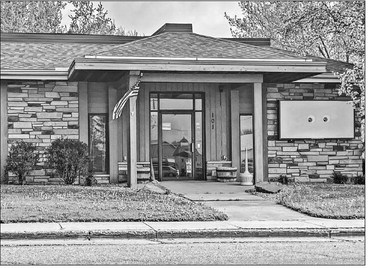Support for child care centers needed
When politicians play games, it is the people who pay.
Last week, the Joint Finance Committee grabbed headlines by moving to quickly eliminate 600 items from Gov. Tony Evers’ proposed budget. Top among the items cut was $480 million that the governor wanted to spend on helping fund childcare.
The action came as no surprise to anyone who has paid attention to Wisconsin politics in the past decade. The Joint Finance Committee has the primary task of hammering out the state’s biennial budget. While the committee includes members from both parties, like the legislature itself, it is controlled by Republicans, who are unwilling to give Gov. Evers, a Democrat, any kind of win, especially with an election year on the horizon.
Party leaders on both sides of the aisle are more concerned about playing political games of one-upmanship than in working together and compromising to reach common-sense solutions. Cutting allocations for childcare support from the budget is just the latest example of that taking place. It puts working families in jeopardy as the cost of childcare continues to spiral, especially in the state’s most populous areas.
Proponents of the increased funding for childcare say it is needed to help stabilize the childcare industry.
According to the Main Street Alliance, “Without it, tens of thousands of families across Wisconsin will be forced to leave the workforce, exacerbating an already tight labor market. This will put upward pressure on wages, contributing to inflation for families across WI, just as the impact of the Trump tariffs is being felt.” Without the funding, they said 87,000 slots at child care providers around the state will disappear.
While on average less costly than in urban parts of the state, access to affordable and reliable childcare is a barrier for economic growth in rural Wisconsin communities. Here, access is the larger issue than affordability. Just as with the quality of schools and safety in the community, young families look to the availability of childcare when making choices about where to live and work.
This is already a problem in rural portions of the state and is a contributing factor in the population decline that many rural areas have seen. Support at the state level is essential in helping turn back that trend and ensuring that existing programs and centers are able to stay and remain and new ones open.
That said, the Republicans on the Joint Finance Committee have a point. Rather than introducing new programs through the budget process, they should look for stand-alone legislative solutions much like the school funding and shared revenue overhaul approved two years ago. Addressing childcare should be taken up as its own legislation. As stand-alone legislation. it would not be subject to the governor’s line-item veto power and provide greater opportunity for compromise.
Raising a child is expensive. About one-third of young people say this cost plays a factor in deciding to have children at all, or if they will have additional children.
Wisconsin is facing a demographic crunch in future years as the population grows older. Addressing childcare costs and accessibility is a necessary step now in order to ensure the state remains strong for decades to come.
The Central Wisconsin Publications Editorial Board consists of publisher Kris O’Leary and editor Brian Wilson.



